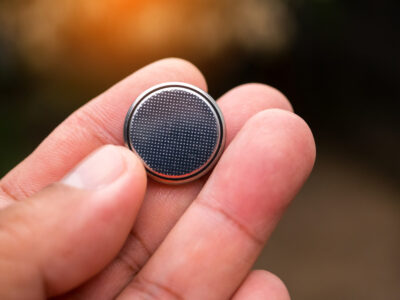When thinking about children and hidden dangers we are often worried about choking hazards, climbing on furniture or other fixtures or even everyday cleaning supplies left unattended. However, there is another danger lurking that needs awareness – button batteries.
Every year, thousands of children are hospitalized due to swallowing button batteries. According to Children’s Hospital of Philadelphia, button batteries are ingested more than 3,500 times a year and can cause death if not treated immediately.
Where are button batteries found?
Button batteries are commonly found in your everyday household items that children tend to put in their mouths such as watches, remote controls, key fabs, and even children’s toys. Although companies try their best to keep these items secure and as safe as possible, sometimes those security measures do not hold up to the curiosity of young children, as well as normal wear and tear. It is important to constantly do routine checks on our children’s toys to ensure that any screws are tight, preventing both the screws and batteries from being ingested as children are easily attracted to small round shiny batteries and objects.
Dangers of button batteries.
If swallowed, button batteries combine with body fluids and sodium hydroxide is formed, a very toxic component which can burn a hole in your internal organs. And when a hole is perforated in your organs an infection is quick to follow. These injuries could cause severe disabilities or even death.
Symptoms of ingestion.
Symptoms are not always the same and are commonly misunderstood for other illnesses. If a button battery has been ingested, you may notice:
-Coughing
-Chest pain
-Bloody saliva or bloody stools
-Vomiting
– Abdominal pain-wheezing/ difficulty breathing
What to do if your child swallowed or you have a suspicion of them swallowing a battery?
CALL 911 or take your child to the emergency room immediately! This is a medical emergency!
Preventing battery ingestion.
- Conduct routine checkups on your children’s toys and household items that contain these small batteries.
- Be aware where these batteries are located in your home. If someone is in your home or taking care of your children, advise the person about these dangers.
- Properly dispose of batteries.
- Educate people on the dangers of these batteries. Many people are not educated on the topic and would not know how to react if this scenario would arise. Spreading awareness can prevent fatalities. When parents often think about dangers, they don’t often think about button batteries.
Let’s keep our children safe by spreading awareness of this often-forgotten danger that is around the children in our lives.
-Hiliaris
Image above from:





